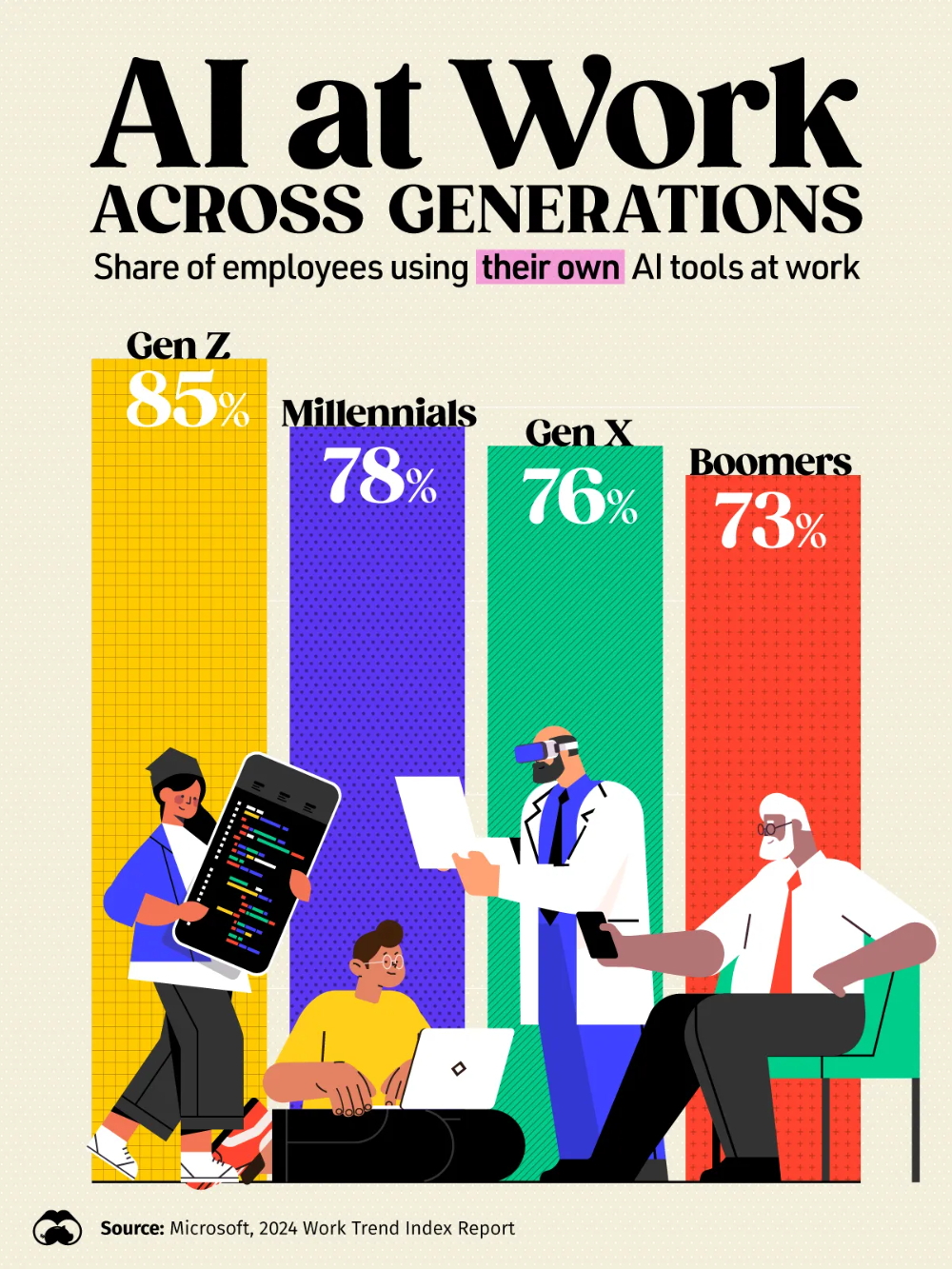Tech
Gen Z Employees Embrace AI in the South African Workplace

AI in the workplace?
Artificial intelligence (AI) is transforming the global job landscape, and in South Africa.
Generation Z (Gen Z) is taking a notably positive stance on its potential. A recent survey reveals that 68% of Gen Z workers believe AI will have a beneficial impact on their careers.

Nathier Jappie, Regional Manager for Africa at the Top Employers Institute, observes that there are significant variances in AI perceptions around the world, according to data from their latest white paper
In contrast, countries like India and China have even higher levels of confidence, with up to 80% of respondents viewing AI as a positive influence on their careers. South African Gen Z employees also see AI as a powerful tool for self-improvement.
The study indicates that 82% believe AI will help them learn new skills, while 70% think it will make them more efficient.
Additionally, 58.5% are optimistic that AI will lead to new job opportunities, and 73.5% feel it will help create a better work-life balance.
Jappie notes that attitudes towards AI differ by industry. While fears of job loss are prevalent in manufacturing, professionals in that sector show the most optimism.
Conversely, those in the hospitality industry—where jobs are more human-centric—tend to be more skeptical.
With Gen Z set to become the largest generation in the workforce by 2035, Jappie emphasizes the importance of involving employees in AI integration processes.
“Organizations should focus on educating their workforce about how AI can enhance their skills rather than replace them,” he explains.
Gen Z is not only adept at using technology but also has valuable insights that can guide effective AI application in various roles. Jappie stresses that as AI continues to evolve, businesses must establish ethical guidelines for its use.
“HR leaders need to grasp the complexities of AI and clearly define what is acceptable and what isn’t to ensure responsible usage,” he adds.
As AI becomes a larger part of our work lives, understanding its benefits and limitations will be crucial for young professionals navigating this new landscape



























